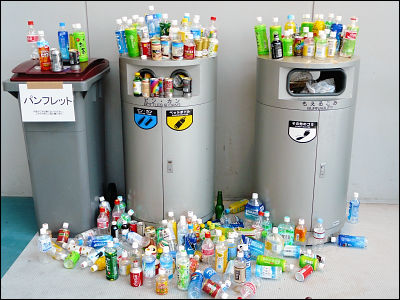'Food production can't keep up because of too many populations' is not the reason for global hunger

'Too many people, not enough food' isn't the cause of hunger and food insecurity
https://theconversation.com/too-many-people-not-enough-food-isnt-the-cause-of-hunger-and-food-insecurity-179168
Malnutrition due to hunger is especially severe in Africa, Asia, South America and the Caribbean. In recent years, the pandemic of the new coronavirus infection (COVID-19) and climate change have led to a rapid increase in food shortages, and the war between Russia and Ukraine, which are major exporters of wheat and corn, has also spurred food shortages. increase.
Many people tend to think that the reason for hunger is 'too many people live on the planet and they are not producing enough food.' This idea originated from what economist Thomas Malthus predicted in the 18th century, and is widely believed at the time of writing the article. But Yasmeen said, 'This belief keeps us away from addressing the root causes of hunger and malnutrition,' arguing that there is another reason for hunger.

The root cause of hunger, Yasmeen points out, is 'inequality and armed conflict.' 'The world
In response to the question, 'Why does hunger occur when enough food is produced?' Yasmeen said, 'Half of the world's crop production is made up of sugar cane, corn, wheat and rice. Many of them are used in sweeteners and other high-calorie, low-nutrient products, as well as in industrially produced meat feeds, biofuels, vegetable oils, etc. The world's food system It is controlled by a handful of multinational companies that manufacture super-processed foods that contain sugar, salt, fat, artificial colors and preservatives. ' In other words, much of the food produced is used to make luxury foods that are consumed in developed countries and does not reach people facing hunger.
Regarding the hypothesis that economic inequality causes hunger, Amartya Sen , Asia's first Nobel Memorial Prize in Economic Sciences , also found that 'hundreds because there was no money to buy food, not just food shortages.' Everyone has starved to death. ' 'Food is a right like water, and public policy should be based on this idea. Unfortunately, the uneven distribution of land and income is still severe, and even wealthy countries can run into food shortages,' said Yasmeen. Said.

We also know that
UN Secretary-General Antonio Guterres said that the war between the two countries has 'hunger hurricanes' as 45 African countries and late developing countries import more than one-third of their wheat from Russia and Ukraine. I warn you that you are exposed to. The United Nations World Food Program (WFP) also reports that its activities have been hindered by the soaring food prices caused by the war. Yasmeen pointed out that each region needs to establish 'food sovereignty' to deal with food insecurity, and argued that diplomatic investment should be made to avoid armed conflict.
In addition, recent climate change, reduction of beneficial insects due to pesticide use, soil pollution, etc. have adversely affected crop production, and many of the produced foods are discarded, Yasmeen points out. For example, in Japan alone, the amount of “food loss” in which food is thrown away is about 5.7 million tons per year, and the amount of food loss per capita is about 45 kilograms per year. The world's total food waste is estimated to be about 1.3 billion tons per year, and it is estimated that about one-third of the food produced for human consumption is wasted.

'Poverty and systematic inequality are as root causes of food insecurity as armed conflict. It is important to put this idea at the center of the debate to feed the people of the world,' Yasmeen said. rice field.
Related Posts:
in Food, Posted by log1h_ik







